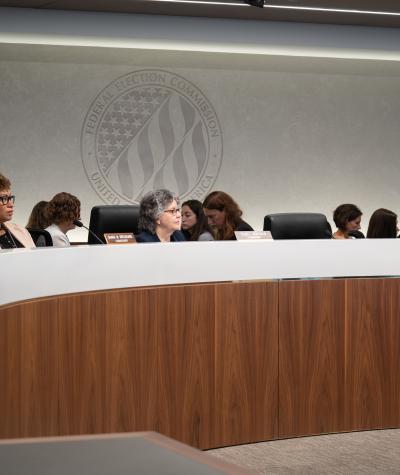To limit the influence of money in politics and prevent corruption and its appearance, federal campaign finance laws have long maintained contribution limits for candidates, political parties, and PACs. Even as our elections are drowning in outside, “independent” spending by super PACs and secret spending 501(c) groups, the amount that anyone can give directly to candidates and political parties remains limited.
But Congress introduced a caveat in 2015 by amending the Federal Election Campaign Act to permit national party committees — political committees run by parties like the Republican National Committee and the Democratic National Committee — to establish separate, special purpose accounts that can accept contributions of up to 3 times the amount that those committees can accept for their ordinary campaign spending.
Congress made clear, however, that these “special purpose” accounts could only be used for certain types of expenses — those related to (1) holding a presidential nominating convention, (2) the “construction, purchase, renovation, operation, and furnishing” of political party headquarters buildings; and (3) election recounts and contests and other legal proceedings.
These accounts may not be used to pay for general campaign expenses, like canvassing or election ads. But recently, both major political parties appear poised to tap into these triple-size pools of money to pay for political ads that advocate for and against federal candidates.
Campaign Legal Center (CLC) and End Citizens United filed a complaint with the Federal Election Commission (FEC), based on a New York Times report and additional investigation, alleging that the NRSC — the Republican Party’s campaign committee for U.S. Senate candidates — violated federal law when it spent over $3.6 million on election ads this election cycle from its special purpose account for recounts and other legal proceedings.
As detailed in CLC’s complaint, NRSC disclosure reports acknowledge that these expenditures came from the committee’s “Legal Proc” account, and nearly all the money was paid to firms that offer no legal services, but instead provide a variety of communications and political consulting services.
Within days of public reporting on CLC’s complaint, the NRSC’s Democratic counterpart, the DSCC, filed an advisory opinion request asking the FEC to opine on the legality of the NRSC’s actions, although presented as a request about proposed DSCC activities. Specifically, the DSCC asked whether it is legally permitted to use its special purpose account funds to pay for campaign ads that are part fundraising solicitation and part election ad, either featuring a Democratic candidate or explicitly urging voters to vote for Democratic candidates for the U.S. Senate.
CLC filed a public comment urging the FEC to reject the DSCC’s request, which amounted to an improper attempt to decide CLC’s complaint through the advisory opinion process. But CLC also noted that these special purpose accounts, which can accept extraordinarily large contributions, cannot be used for campaigning.
Today, however, the FEC declined this opportunity to reinforce the limited purposes of these special purpose accounts. Instead, the Commission approved an advisory opinion that permits the DSCC and other party committees to use legal expense funds to pay for campaign ads that include fundraising solicitations for these special purpose accounts.
Although the advisory opinion states that the costs for such ads must be “reasonably allocated” between party committees’ general and legal expense accounts, the FEC offered no meaningful guidance or rules regarding such allocation, leaving it up to committees.
Of course, without such guidance or rules, whether costs have been “reasonably allocated” is in the eye of the beholder.
The opinion thus leaves far too much room for interpretation and abuse: A party committee looking to push the legal boundaries could attempt to use this opinion to justify paying for most of an ad’s cost from its restricted legal funds, even if the ad primarily urges voters to elect or oppose federal candidates.
The only recourse, if a committee abused this decision to blow past federal contribution limits, would be to file a complaint with the FEC, but as CLC has documented in the past — and as FEC Commissioner Ellen Weintraub noted in dissenting from the opinion — it has become incredibly difficult for the FEC to muster enough consensus to even open an investigation in enforcement matters.
Today’s opinion has no effect on the pending FEC complaint against the NRSC, since FEC advisory opinions cannot create new legal rules and do not apply retroactively. But the opinion signals that the FEC does not seriously intend to police the existing laws that govern the political parties’ megadonor-funded special purpose accounts.
As such, the most likely outcome of today’s decision is, unfortunately, the continued erosion of federal contribution limits, this time through national party committees’ illegal use of restricted legal funds. The FEC has once again failed to do its job to protect the voices of everyday American voters. The result is another step in the ever-increasing power grab of wealthy special interests in our political system.

